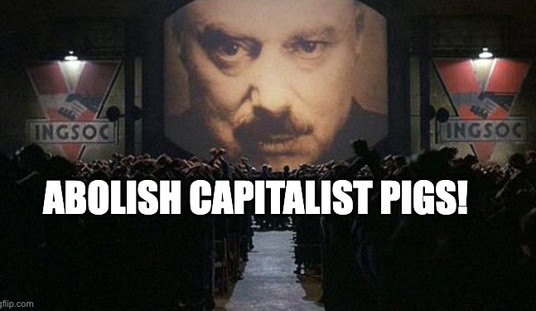In the new administration, we will likely see a shift away from free trade dressed as concern over working conditions and compensation for workers abroad. The Obama administration will probably use the term “sweatshops” frequently in rationalizing a more protectionist trade policy than its predecessor. Nicholas Kristof warned a week ago that focusing on sweatshops as a human-rights abuse obscures the opportunity they represent in real life:
Before Barack Obama and his team act on their talk about “labor standards,” I’d like to offer them a tour of the vast garbage dump here in Phnom Penh.
This is a Dante-like vision of hell. It’s a mountain of festering refuse, a half-hour hike across, emitting clouds of smoke from subterranean fires.
The miasma of toxic stink leaves you gasping, breezes batter you with filth, and even the rats look forlorn. Then the smoke parts and you come across a child ambling barefoot, searching for old plastic cups that recyclers will buy for five cents a pound. Many families actually live in shacks on this smoking garbage.
Mr. Obama and the Democrats who favor labor standards in trade agreements mean well, for they intend to fight back at oppressive sweatshops abroad. But while it shocks Americans to hear it, the central challenge in the poorest countries is not that sweatshops exploit too many people, but that they don’t exploit enough.
Kristof writes almost exclusively about poverty for the New York Times, and no one will confuse him for a corporate lackey under any circumstances. He puts a vital element back into the argument over trade and labor standards: context.
Options for fighting poverty anywhere fall into two categories: welfare and investment. The former only prolongs the misery, while the latter raises standards of living and builds an economy that can lift people out of poverty permanently. In order to get investment, especially in manufacturing, the target has to promise more economic benefit than competing sites, and labor costs are a major component of that calculus.
That doesn’t mean that the US should not insist on safe working conditions and limits on child labor, but it does mean that we need to understand compensation in the context of the local economy. What sounds like exploitation wages for Americans are often quantum leaps in compensation and safety for poor people in third-world nations. Without a “sweatshop” option providing safe jobs and significant wages, children live — and die — in the garbage dump for a meager subsistence living. They dream about these “sweatshop” jobs, working indoors with a chance to earn real money and not die under the wheels of garbage trucks.
The context of wages and compensation for these manufacturing jobs has to be understood before we walk down the path of Smoot-Hawley trade policy once again, this time with righteous fervor against non-existent exploitation. Hopefully, the new administration will listen to Kristof before triggering a collapse in global trade that would turn this recession into another full-blown depression. (via QandO)








Join the conversation as a VIP Member